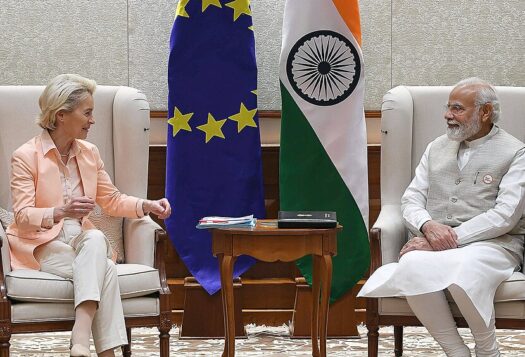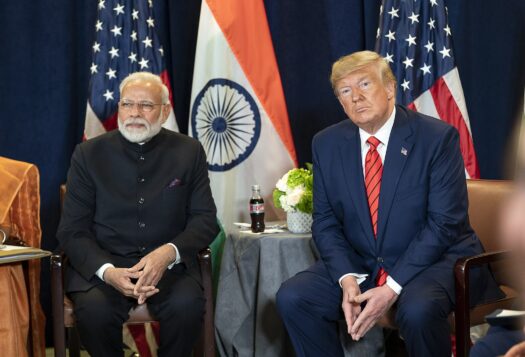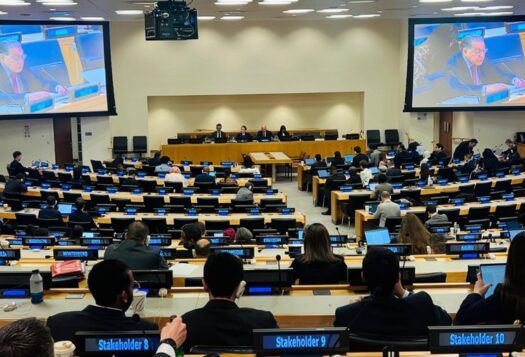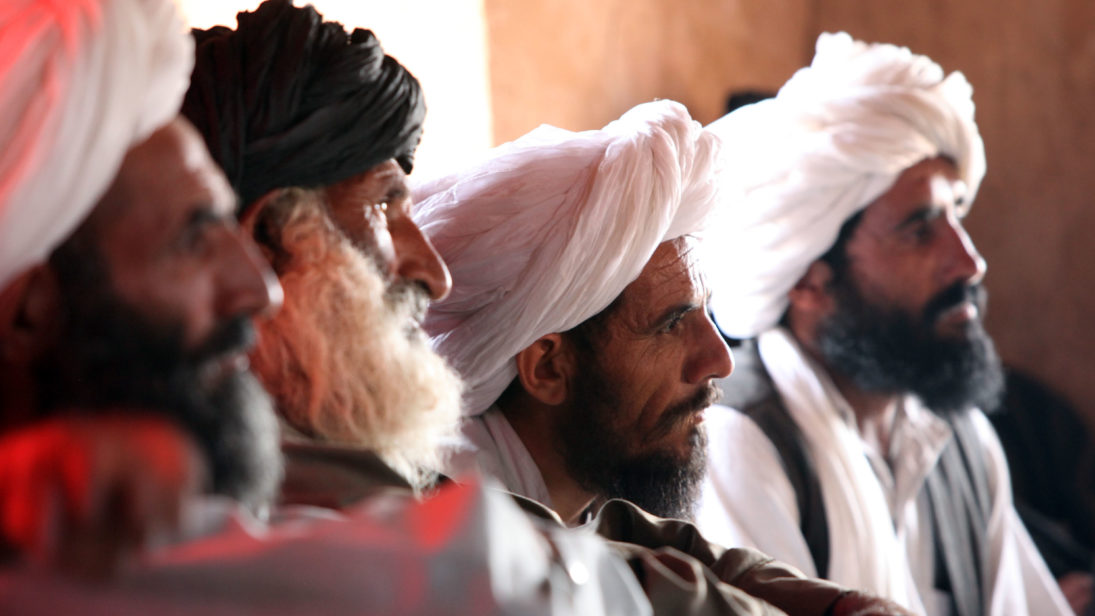
Efforts to negotiate with the Taliban have evolved since 2003 when talks with Taliban moderates were first proposed. Fourteen years later, U.S. President Donald Trump outlined his policy towards Afghanistan, pledging to end a strategy of “nation building” and instead focus on addressing the terrorist threat emanating from the country. While Trump committed sending more troops to Afghanistan, his speech provided few specifics on how their addition would substantially change conditions on the ground. Furthermore, the president’s speech hardly mentioned a reconciliation process with the Taliban, which the United States and Afghanistan have been trying to achieve for over a decade.
Even after 16 years of war, the Taliban remain undefeated. According to a July 2017 report released by the Special Inspector General for Afghanistan Reconstruction, out of Afghanistan’s 407 districts, the Taliban controls, contests, or influences 164 districts. According to the United Nations(UN), in 2016, at least 4,953 deaths and injuries in Afghanistan were caused by the Taliban.
Given that the war American and NATO forces so ambitiously fought seems to be going nowhere, it becomes increasingly important to explore alternative means of conflict mitigation, including reconciliation between the Afghan national government and the Taliban. As a frustrated U.S. president struggles to enact a cohesive and effective strategy for the country, it is important to understand what reconciliation means in a fractured society like Afghanistan and why it needs to be Afghan-led. Though reiterated by the international community time and again, the “Afghan-led” motto has never translated into practice. This has allowed other intermediaries to step in, increasing confusion and tension between the Taliban and the Afghan government.
Reconciliation: The Last, Best Alternative
Following the 2001 U.S. invasion of Afghanistan, tentative efforts were made to reintegrate Taliban members who had renounced the movement. In choosing a strategy of reintegration, the United States decided not to deal with the Taliban as a collective organization, but as a weakened group whose individual members could be convinced to change sides. As the insurgency intensified, however, efforts to reintegrate individual members proved impossible. As a result, reintegration gave way to a policy of national reconciliation. Since then, the voices supporting reconciliation have grown as an alternative means to mitigate the conflict inside Afghanistan.
Reconciliation in Afghanistan is often used as a synonym for political accommodation of the Taliban, but political accommodation is only one part of the broader conflict resolution process. Although there is little agreement on the definition of reconciliation, most authors describe it as a process rather than an end state. The International Institute for Democracy and Electoral Assistance defines reconciliation as a process “through which a society moves from a divided past to a shared future” and allows people to look at the past in terms of shared suffering and collective responsibility. At this stage in the Afghan conflict, few believe reintegration, which refers to persuading rank-and-file insurgents to lay down their arms in exchange for personal safety, immunity, and employment, without reconciliation will produce a long-term solution.
When discussing reconciliation and peacebuilding, it is critical to take into account the experiences of all the parties involved in the conflict and address the needs of the victims and survivors. A transition unaccompanied by transformation in social, political, and economic structures and relationships lays a loose ground for reconciliation. Non-Pashtun communities in Afghanistan continue to be wary of any kind of reconciliation with the Taliban. As I have argued elsewhere, warlords who have become politicians continue to commit human right violations under the blanket of limitless amnesty. Reconciliation is meant to address all levels of conflict and renew relationships that have been damaged over the course of the war, but a lack of trust among many Afghan communities and forced mercy have obscured the process.
Despite these challenges, the Afghan government has shown some positive signs of moving towards pursuing a comprehensive reconciliation process. For example, in March 2015, Afghan President Ashraf Ghani professed an interest in a South African-style Truth and Reconciliation Commission to heal the trauma suffered by both civilians and members of the Taliban. However, the government’s interest in promoting reconciliation has not always been backed up by action. Namely, the Afghan government has made little effort to document war crimes and crimes against humanity. According to a 2016 report by the International Criminal Court (ICC), since Afghanistan’s accession to the Rome Statute of the ICC on May 1, 2003, not a single Afghan war crime and crime against humanity has been prosecuted.
The battle for ownership of talks with the Taliban further hampers reconciliation. Pakistan, for example, wants to be at the center of these talks given its strategic interests in Afghanistan. Russia is seeking to limit U.S role in the region via the “Moscow Tripartite” comprised of China, Pakistan, and Russia. While the Tripartite format was rejected by the Taliban, the initiative was notable for its leniency towards the Taliban, particularly the removal of UN sanctions on certain Taliban members. Meanwhile, Iran is also alleged to be providing assistance to the Taliban. The political jockeying and one-upmanship of these actors, combined with growing fragmentation within the Taliban, has exacerbated confusion over the inclusion of certain groups in the reconciliation process.
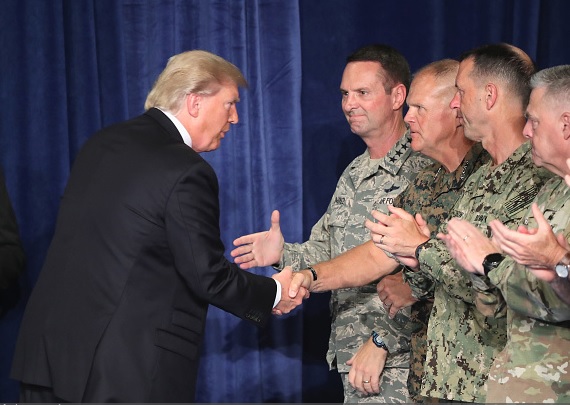
Achieving a Comprehensive Reconciliation Process
For reconciliation to be achieved, it is important to halt the regeneration of the causes that contributed to the Afghan conflict. Issues including strengthening institutions, decentralization of power, an independent judiciary, and promotion of civil society must all be addressed. A smooth transition links the past to the future. Therefore, it is imperative that the government, along with the help of the international community, introduces changes that are sustainable in the long-term.
Even as General John W. Nicholson Jr., commander of U.S. forces in Afghanistan, stressed America’s determination to pursue a political settlement, Trump provided very few specifics about his thoughts on achieving such an outcome. Yet, despite many attempts, the talks with the Taliban have never been an Afghan-led process. To implement any kind of reconciliation process, the Afghan government must first confront the existing ethnic, tribal, and gender asymmetries in Afghan society, which are responsible for the growing mistrust among the Afghan population.
A cohesive society will be more resilient to threats and divisions caused by the Taliban and other insurgent groups. The Afghan government along with the help of the international community should address the issue of security required for starting the reconciliation process. This applies to both the insurgents who are looking for a political solution and the civilian population. Both the Afghan and the U.S. governments will have to find a way to restore the moral stature they have lost due to their failure in promoting justice and containing civilian casualties. Until these issues are addressed, the process of reconciliation will remain frozen.
***
Image 1: U.S. Marines Photo by Cpl. Logan E. Riddle via Flickr
Image 2: Mark Wilson via Getty Images
